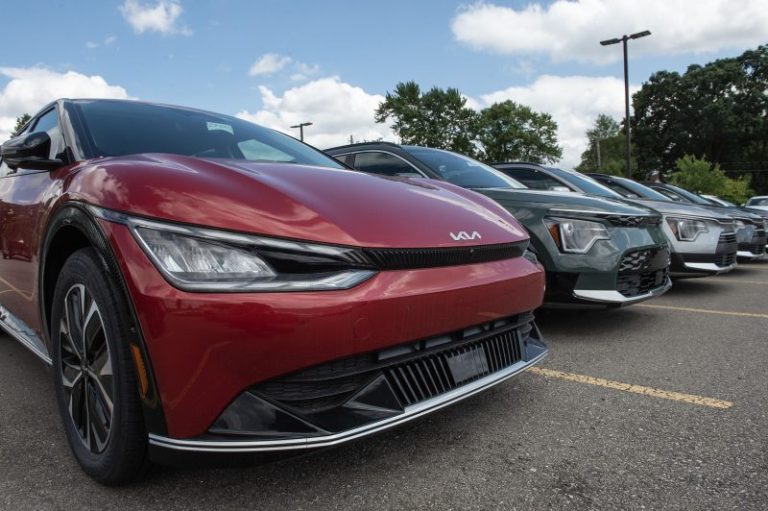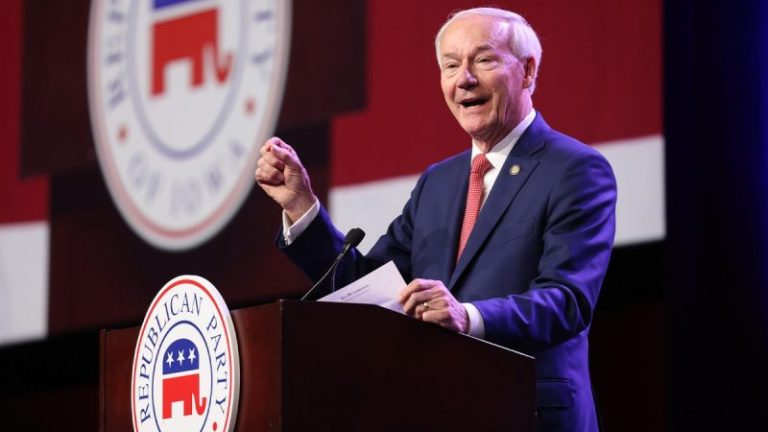There are plenty of reasons not to buy an electric vehicle in 2024: Auto loan rates are high. Despite a recent wave of discounting, many EVs remain pricier than gas-burning cars. And an incomplete network of sometimes glitchy chargers has stoked drivers’ “range anxiety” about running out of juice.
But while the all-electric market is slowing, sales are forecast to keep rising. Cox Automotive expects EVs to comprise 10% of the United States’ vehicle market by the end of the year, up from 7.6% last year — when domestic sales hit a record 1.2 million — and 5.9% in 2022. And first-time EV adopters are still powering the expansion, with LexisNexis Risk Solutions telling NBC News that 3 in 4 new EVs are driven by people switching from a combustion-engine vehicle.
Here’s what to know if you’re considering buying this year.
Car shoppers can still expect to be rewarded for going electric, thanks to tax breaks from the Inflation Reduction Act, but the rewards won’t be as widespread.
The law’s tax incentives are limited to EVs whose batteries aren’t substantially built in certain foreign countries, particularly China, or with minerals sourced there. The number of models eligible for the full federal tax credit of $7,500, or partial $3,750 credit, shrank from 43 last year to fewer than 15 that comply with criteria on the books currently. The punted models include popular picks like the Tesla Model 3 and the Nissan Leaf.
Tesla has been cutting prices on some versions of the Model Y, among other vehicles, in recent months. Yuki Iwamura / Bloomberg via Getty Images
And income caps still apply: Individuals making over $150,000 annually nor couples bringing in $300,000 qualify for the credits, which stop at electric sedans over $55,000 and SUVs and trucks over $80,000.
“Maybe you’re a person who’s overwhelmed with all the choices, and if you start with a smaller list, that helps you out,” said Alison Flores, a manager at H&R Block’s Tax Institute. But “if you’re really into the technology or certain nuances and you were looking at a certain thing, you may be disappointed,” she conceded.
A narrower selection of EVs eligible for tax incentives could push more consumers toward leasing, said Jay Turner, an environmental studies professor at Wellesley College and author of “Charged: A History of Batteries and Lessons for a Clean Energy Future.”
If you’re really into the technology or certain nuances and you were looking at a certain thing, you may be disappointed.
Alison Flores, manager at H&R Block’s Tax Institute
Many of the excluded vehicles still qualify for discounts when leased, he said, because the U.S. Treasury considers leasing an EV a commercial transaction, exempting the vehicles from some IRA rules.
“That may be a more attractive strategy for many consumers in the next couple of years,” Turner said.
One “pretty major” change taking effect this year, Flores noted, is that consumers can now apply their full federal tax credit right away at dealerships, rather than having to wait to file their taxes to receive it.
The rule “allows the dealer who you purchased the vehicle from to essentially advance you the tax credit,” she said, which can reduce financing costs for buyers taking out auto loans.
Auto experts said the mix of federal and state incentives, at a time when many EV prices are falling, could allow customers in some places to drive a new or used EV off the lot for as little as $10,000 this year.
Tesla and GM have slashed prices on some electric models to spur demand as inventories have piled up. Cox said those price cuts helped bring average EV prices down nearly 18% over the course of last year. They are now nearing price parity with gas cars, the firm said: At the end of 2023, the average EV cost, even after factoring in the more expensive Tesla models, was $50,789, within spitting distance of the average gas vehicle at $48,759.
Edmunds, an online car shopping resource, put the average price of a used EV at $50,000 as recently as December 2022 but now estimates it at about $37,000.
“Strangely enough, it’s one of the few areas where you can get a great deal right now,” said Joseph Yoon, a consumer insights analyst at Edmunds. “A lot of dealers are seeing that demand for EVs has kind of cooled. So there are discounts on top of the federal stuff.”
This year may also be a better time to go pre-owned, said Turner. “Normally we think that EVs are just for people who are pretty well off. But the tax incentives, especially for used EVs, are definitely opening up the market to more consumers,” he said.
While the IRA’s used EV credit took effect last year — offering buyers 30% off the car’s purchase price, up to $4,000 — some states and municipalities have since launched their own incentive programs.
The tax incentives, especially for used EVs, are definitely opening up the market to more consumers.
Prof. Jay Turner, Wellesley College
Turner’s back-of-envelope math suggests that, thanks to a mix of stackable federal and state credits, consumers in California or Massachusetts eyeing a used Chevy Bolt with 30,000 miles and a $20,000 list price could purchase it for around $10,000 — “which is crazy,” he added. “And I think a lot of people who are in the market for a $10,000 car don’t think an EV is accessible.”
In some areas, the discounts could go even deeper. Colorado, for example, allows residents who meet a certain income threshold to trade in a gas-powered vehicle for a tax credit of up to $6,000. An eligible buyer in that state could stack the available incentives and take home a brand-new Chevy Bolt for a four-figure price tag.
Using those same incentives — the $7,500 federal tax credit, $7,500 in state credits, and the $6,000 vehicle exchange program — strategic Coloradans could theoretically nab a Tesla Model 3 for $14,000. That is, if the company regains eligibility for the list.
Turner noted that leased Teslas can still take advantage of the full tax credit, and that Hertz is currently selling off Model 3s from its rental fleet for as low as $20,000. The respective tax credits for qualified buyers could bring costs down to between $13,000 and $18,000, he said, “a pretty good deal when a used Toyota Corolla falls in the same price range.”
On Thursday, the Biden administration announced $623 million in new grants to fund 47 EV charging projects in 22 states and Puerto Rico. The move was a tacit acknowledgment of the need to upgrade and expand a charging network whose limited extent and reliability have turned off many current and would-be EV drivers.
“All the early adopters, and all the people that live in big cities with easy access to charging, they’ve bought their EVs now,” said Yoon. “And now the manufacturers have to figure out a way to get the regular people, if you will, to buy the cars.”
Some have found driving battery-powered cars outside of major metro areas a dicey proposition, given a shortage of chargers in less populated places. But consumers “should be optimistic that better charging experiences are coming this year,” said Turner.
Major automakers struck deals with Tesla last year to gain access to its network of superchargers, which are designed to juice an EV for hundreds of miles after charging for an hour or less. As of last July, the company operated 1,900 supercharging stations — with 10 times as many connectors — across the country.
As part of those deals, Ford and GM will supply EV owners with adapters for the connectors, and they’ll start integrating Tesla’s unique plug with their new models in 2025.
CLARIFICATION (Jan. 15, 3:00 p.m. ET): A previous version of this article suggested EV sales were slowing. They are continuing to rise, but at a slower rate of growth.
This post appeared first on NBC NEWS










